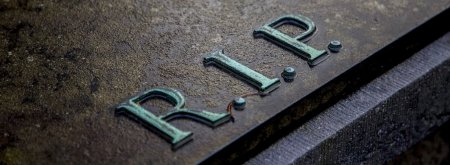My Science Teacher Says 'Science Has Buried God'
When I was at secondary school, one of the science teachers ran an assembly where he asserted that evolution has done away with the need to believe in a God. Many of my friends afterwards were keen to press this point with me – “how can you believe this rubbish in light of science?”
The only time Jesus was mentioned in my science lessons was when we learnt how radiocarbon dating proved the Turin Shroud (which was claimed to be the burial cloth of Jesus) was a medieval fake. If God is mentioned in science lessons, it’s often in the sense of ‘until science came along, people used to tell fairy stories like this to explain it’.
The problem with this kind of view is that it starts with a massive assumption: that science and Christianity are fundamentally opposed to each other. Often there is a second belief too, something along the lines of ‘scientific evidence is the only real evidence’. That is, if you can’t test it in the lab, it’s not true.
So here are some questions for you to think through, and to raise with your teacher if this issue arises in class. Each question is followed by a bit of explanation of the issue it’s exploring. (For more practical tips on approaching and speaking with your teachers, check out Engaging Well with Teachers).
How can you be so sure that science will always point the way you think it does right now?
Science is constantly developing and changing as new research is conducted and new information comes to light. Although people talk about ‘scientific proof’, science itself doesn’t actually prove anything. The most up to date science simply represents the best understanding we currently have of the way things work. So whether we believe in God or not, we should be careful about hanging too much on any current understanding. A good example is the fact that for a long time it was widely held that the universe was eternal, that it had always been here. Later, when evidence for a beginning of the universe became increasingly hard to ignore, scientists found they had to change their thinking. Who knows how future discoveries may change way we understand the world
If scientific evidence is the only real evidence, how do you handle the fact you can’t prove that statement in the lab?
Those who make this argument (perhaps in slightly different words) probably don’t realise that it defeats itself. It is impossible to prove that only scientific evidence is valid because you can’t get scientific evidence for that statement. In asking this question you may stimulate a discussion about how we know things at all, and the fact that we all believe things we cannot prove.
If science is so fundamentally opposed to religion, how do you account for the fact so many influential scientists have been religious?
As we look at the history of science we see that many of those who drove the development of science were religious. In fact, the idea that the world around us can be understood was originally based on belief in God. C.S. Lewis put it this way: “Men became scientific because they expected law in nature, and they expected law in nature because they believed in a lawgiver” (Miracles, p.169). Science flowed out of a desire to understand the world God had made. You can, of course, be a scientist without this belief, but the continued involvement of religious believers in science wouldn't make sense if science had once and for all done away with God.



